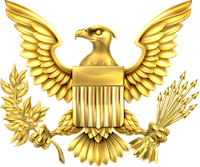Family Immigration
We help families immigrating to the U.S. from abroad or from within the U.S.
U.S. Citizenship
We can assist you to become a U.S. citizen.
Employment-Based Immigration
We assist with work visas and green cards based upon U.S. employment.
IMMIGRATION AND NATURALIZATION
A family may spend their entire life savings and wait years just to reach the United States. Many families need help with the immigration process. An experienced United States immigration and naturalization attorney can help families confront and navigate the many obstacles on their journey to America.
Immigration to the U.S based upon an employment offer or for certain highly qualified individuals may be even more complex. It is crucial to work with an experienced immigration lawyer to understand the many legal requirements and the practical considerations involved in your case.
LAW OFFICE OF JOEL FRIEDMAN

Immigration Attorney
LEGAL SERVICES WE PROVIDE:
We can help with the process of obtaining a U.S. work visa.
Want a green card? For information:
We will help you through the process of naturalization and obtaining U.S. citizenship.
EXPERIENCE AND EXPERTISE


WHY YOU NEED AN IMMIGRATION LAW ATTORNEY
A good immigration lawyer is a highly trained and skilled professional who is experienced in dealing with complex immigration matters. While the process may be confusing for everyday U.S. citizens and foreign citizens, it is highly understandable and familiar to an experienced immigration law attorney. If you want to complete the application process successfully and with as much ease as possible then seeking assistance from an immigration law attorney is crucial.

What Makes a Great Immigration Lawyer?
Good immigration lawyers are well-versed in the law, empathetic to your situation, and clear and direct in their communication style. They will guide and help you through a complicated process and use creative problem-solving skills to overcome obstacles that may arise.
Expert immigration lawyers know how to approach the laws that affect immigrants and use legal tools to serve their clients. They can be immensely helpful in helping an individual bring their documents together and craft any personal statements in the best light possible.
Immigration attorneys may also ensure that their clients are meeting the right immigration officers at the right times. A competent attorney could mean the difference between an accepted and a rejected claim.
Immigration lawyers act as the eyes and ears for your case. They are on the ground and inside the country, so they are able to inquire much more easily about your application.
CLIENT TESTIMONIALS

-Attentive, Friendly, and Ready to Help-

-Outstanding Lawyer-

-Friendly, Thorough, and Effective-

-Helping Our Dreams Come True-

-Blessed in Having Joel by our Side-

-Pleasure to Work With-

-Very Professional!-

-Came Back to Work WIth Joel Again-

-Excellent Lawyer!-

-Thorough, Reliable Lawyer – and Friendly Too!-

-Can’t Say Enough Good Things-

-First Rate Immigration Help is Here!-

-Professional, Well Organized, and Competent-

-Truly Cares About His Clients-

-He Was Especially Patient-

-With Us Every Step of the Way-

-Joel is a Rockstar-
CONTACT US TO DISCUSS YOUR CASE
CALL US AT (619) 595-0888
MESSAGE US:
Your message to us is completely confidential and your contact information is safe with us.
FIND US:
401 West A Street, Suite 1150
San Diego, CA 92101
RECENT ARTICLES
FREQUENTLY ASKED QUESTIONS:
How to Immigrate to the United States from Abroad
Throughout the process, you'll need to gather and submit forms and any requested documents. Completing this process precisely is pivotal to being able to advance to the entrance interview. Employing an experienced immigration law firm will help you complete this process correctly from start to finish.
While immigration takes place prior to entering the country, naturalization does not occur until long after. Naturalization is the path that a foreign citizen must complete in order to become a full U.S. citizen. Again, this is a process that is most thoroughly completed with the assistance of an immigration law attorney because an application for naturalization must be submitted. Eligibility requirements vary but generally involve 3+ years of residence in the country. There is more than one route to meeting the requirements for naturalization, which is why seeking assistance from an immigration lawyer in San Diego is the best way to evaluate all of your options.
U.S. Visas
Types of U.S. Visas
There are many different types of U.S. visas. A visa is an actual document that a foreign national presents at a U.S. port of entry. Generally speaking, foreign nationals need a valid, unexpired visa to enter the U.S. There are exceptions to this.
Foreign nationals using a visa to enter the U.S. must intend to engage in the activities in the U.S. that the visa category allows. For example, a person that comes to the U.S. on a temporary H-1B work visa needs to work for the specified U.S. H-1B-petitioning employer after entering the United States. A student admitted to the U.S. on a student visa needs to attend school, and so on.
The validity periods that are printed on U.S. visas do not control how long a foreign national is allowed to remain in the U.S. Authorized periods of stay in the U.S. are controlled by I-94 records and other factors.
U.S. Visitor Visa
A U.S. Visitor Visa is for temporary stays. Visitor visas are mainly applicable for tourism or business purposes. Vacations, visiting friends or family, medical treatment, and non-credit study all fall under the tourism category. This is called a B-2 visa.
Visitor visas can also be issued to individuals traveling for business affairs like settling an estate, attending a conference, training purposes, or negotiating a business contract. This is called a B-1 visa. Though an individual may travel under a B-1 visitor visa to conduct business or to attend an educational conference, they cannot use this type of visa for study, employment, or to begin the process of naturalization.
U.S. Work Visa
The U.S. fiscal year begins October 1st and ends September 30th of the following calendar year. During this time, 140,000 work visas are available for issuance to candidates who meet the required qualifications. Five preference categories are used to organize and prioritize work visa applications. Children and spouses of the worker can also be granted a visa. Before applying to immigrate as an alien worker, the foreign citizen must first obtain approval from the Department of Labor.
People who possess an extraordinary ability in their field are given the highest preference for entrance. In addition, highly skilled and educated professionals are given the next highest preference for entrance. Temporary worker visas may also be issued and are based on country of origin and worker qualifications. Understanding what category you may eligible for, as well as how to most efficiently complete the application and employment verification process involves assistance from an immigration law firm.
How to Apply for a U.S. Immigrant Visa
If you are applying at a U.S. Consulate, then after your immigrant petition has been approved you will need to complete an immigrant visa application. The assistance of an immigration law attorney at this stage can be critical. An experienced immigration attorney can determine if you are applying for the correct visa status and guide you through the often-complex immigration visa application process. You will need to pay required government fees and file your application with the National Visa Center (NVC). In coordination with submitting your application for review, you will also need to provide the NVC with proof of financial documents and other supporting documents. The delivery method for submitting your documents to the NVC varies depending upon your citizenship country. For citizens of some countries the supporting documents are submitted online, for other countries via email, and for still other countries by sending hard copies to the NVC. These procedures often change as the NVC updates them for efficiency.
As part of the completion of this process, eventually you will need to undergo a personal interview by a consular officer at a U.S. Consulate or Embassy to determine your eligibility to immigrate to the United States. Background checks and other steps must also be completed as part of this stage. The consular officer will review your case and interview you in person. The interview usually occurs in your home country. Under some circumstances you can be interviewed in another country as a “third country national.” Because of the importance of your personal interview it is best to have a qualified immigration attorney prepare you for your consular interview
Completing the U.S. Immigrant Visa Application Online
The Consular Electronic Application Center (CEAC), overseen by the Bureau of Consular Affairs under the U.S. Department of State, has made an immigrant visa application form accessible online to foreigners applying for a U.S. immigrant visa. This process involves filing the Immigrant Visa and Alien Registration Application and sometimes also the Online Choice of Address and agent.
Because of the importance of truthfully, accurately, and completely providing your information and answering the many questions that are asked of you on your online immigration visa application form, it is best to have an immigration law attorney to guide and counsel you about completing this important step.
U.S. Immigrant Visa Requirements
In order to be considered for approval for an immigrant visa at a U.S. Consulate in your country, a U.S. citizen, a potential employer, or a green card holder who is a relative of the applicant generally must sponsor the foreign citizen. The sponsor is called the “petitioner” and the foreign national is the “beneficiary.”
The petition is filed to establish that the requisite relationship exists that is recognized under U.S. immigration law. For instance, a U.S. citizen filing a petition for a foreign national spouse must prove that relationship. Only after the petition is approved can an applicant/beneficiary continue their immigrant visa process.
Getting your Petition and U.S. Visa Status
Immigration visa petition and application status wait times will vary depending upon the visa category of your pending petition and/or application. To check the status of your immigration visa petition or application, you will need to enter your 13-digit petition or application receipt number on the U.S. Citizenship and Immigration Services (USCIS) website. Check status now.
You can also check the current USCIS processing times by accessing the USCIS website link for processing times. Identify your type of pending petition or application and the USCIS regional center or USCIS field office that is processing your petition or application, and you will be able to view the current processing times for your case. Keep in mind that USCIS posted processing times are only approximate at best. Processing times often change depending upon shifting U.S. government priorities and other factors that can speed up or slow down a particular visa category.
Applicants who have already completed this step and are waiting to find out the status of their U.S. visa should visit the website for the U.S. Department of State. In order to check the visa status, you will be required to enter your application type and case number.
U.S. Immigration Interview Questions
An experienced immigration law attorney should help prepare you for the interview portion of the immigration process. Your interview will take place either in the United States or at the appropriate U.S. Consulate abroad, depending on where you filed and your eligibility category.
If your interview occurs at the U.S. Consulate, then a consular officer will review your case and ask you questions. If your interview occurs within the United States then a USCIS immigration officer will interview you at the local USCIS district field office that has jurisdiction over where you live. The interviewing officer uses your personal interview as an important tool to assess your eligibility. Officers review applicants’ case filings, the results of their background checks and other information, and they ask probing questions to the person being interviewed. Sometimes the interview is recorded or videotaped.
U.S. Immigration Entrance Limits
The U.S. limits the number of immigrant visas that it issues yearly to immigrants. There are multiple categories for family-based and employment-based immigrants. Each category receives a certain allowable number of slots from the total number of immigrants that can immigrate every year to the United States. These limits also vary by country (per country quotas) and when the prescribed limits for each respective category are reached, the foreign national applicants in those categories are placed on a waiting list.
Your place on the list is based on your applicable category and your country. The date that you or your U.S. employer filed your immigration petition to USCIS or that your U.S. employer filed a labor certification application to the U.S. Department of Labor is your filing date. That filing date is referred to as your “priority date.” Individuals with the oldest priority date in each category are placed at that top of the waiting list and all others follow chronologically.
The U.S. Department of State publishes what is called a “Visa Bulletin” each month. The available numbers for each category with per country quotas are listed on each monthly Visa Bulletin. Only when your priority date on the Visa Bulletin is either current or before the published date in your category are you allowed to then apply for a green card.
Waiting for your priority date per the Visa Bulletin can be a relatively short period of time or it can take many years, depending upon your category, country of chargeability, and other factors. That is another reason why it is so important to work closely with an experienced immigration attorney from the beginning of your immigration journey to plan and prepare the best course of action for you and for your family.
U.S. Residency - Green Cards
What is a Green Card?
A green card holder is the same thing as being a legal permanent resident of the United States. The terms “green card” and “permanent resident” are used interchangeably. The commonly used term “green card” is slang.
While valid green card status allows the holder to permanently live in United States, it does not equate to naturalization. Green card holders are not U.S. citizens.
However, eligible green card holders may later apply for naturalization, which leads to full U.S. citizenship.Green card holders share some overlapping privileges with U.S. citizens. For instance, legal green card holders are able to live and work in the U.S. They can also travel and re-enter the country legally. Green card holders can even petition for some other close family members to become green card holders.
Getting a U.S. Green Card
The first step to acquiring a green card is to check and make sure that an individual is eligible. An individual may be eligible through a number of different pathways. There are certain positions for green cards available for individuals who have family members who are legal permanent residents. Several categories of potential jobs can offer an individual a green card. In addition, individuals can be brought into the United States under a special accommodation visa or through the refugee process. An individual also must show that they will not become a public charge.
Then, the individual must go through the adjustment of status process. They must file an immigration petition and file form I-485. After the process of filing that form, a green card applicant must set up an appointment with an Application Support Center and a potential follow-up interview and request for further documents. Then, the application process is complete, and an individual must wait for a decision on his or her status.
Green Card Interview Questions
In the process of applying for a green card, an individual will almost always have to go through an interview. The interview is set up to assess an individual’s eligibility to receive a green card. The primary purpose of the interview is to ensure that an individual is being truthful about the basis for their eligibility and in their responses to the many questions were asked of them on their green card application forms. Therefore, the questions that will be asked pertain to the basis for the application and to the individual’s history and background.
An experienced immigration law attorney should help prepare you for the interview portion of the immigration process. Your interview will take place either in the United States, for example in San Diego, or at the appropriate U.S. Consulate abroad, depending on where you filed and live and your eligibility category.
Green Card Medical Exam
All foreign nationals who apply for a green card must complete and pass a required medical examination before their green card cases can be approved. A government-approved physician must perform your medical exam.
If foreign nationals are applying for their greens cards from outside of the United States then there often are just one or two designated doctors that are authorized to perform the medical exam to be provided to the U.S. Consulate. If foreign nationals are applying for Adjustment of Status in the U.S. then there are more approved doctors for you to choose from.
The doctor will use Form I-693 to complete your medical examination. You should be provided with a copy of your completed medical examination form. However, the doctor will give you the original I-693 form in a sealed envelope that must remain sealed and submitted to the government that way.
Green Card Renewal Fee
The green card renewal fee currently is a total of $540 as of 2018. This fee is broken into two parts. The first is a $455 application fee in order to process the green card application. There is also an $85 biometrics fee that is charged to most applicants. The biometrics fee is for photographing and fingerprinting the green card holder.
This process is used to renew an expiring or expired green card for 10 years. The I-90 form is used to renew your green card. The I-90 green card renewal application can be mailed or submitted electronically, with proper supporting evidence.
What to do if lost Green Card
Individuals who have lost their green card or have had it stolen should attempt to remedy the problem as quickly as possible. They should file USCIS form I-90 along with the application fee, a government-issued photo ID, and a copy of their lost or stolen green card if possible. An individual then may need to wait 8-10 months or so in order to receive a replacement.













